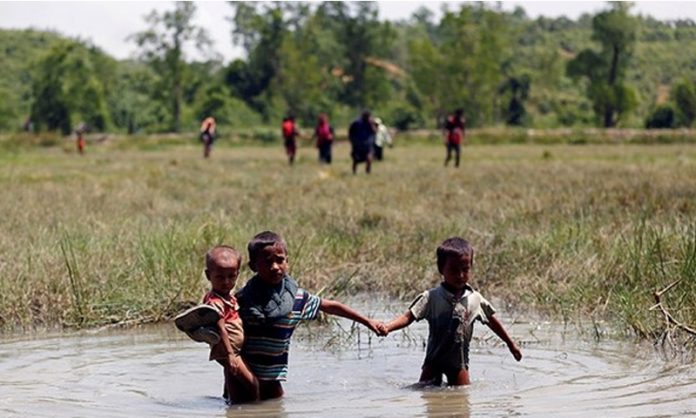Pakistan has expressed concern at the plight of Rohingya Muslims in Myanmar, a community facing serious human rights violations allegedly by the state authorities.
Foreign Office (FO) said in a statment, Pakistan expresses serious concerns at the plight of Rohingya Muslims and demands the Myanmar government to investigate the killings and displacement of Rohingya community.
The FO also said Myanmar should take strict action against those responsible for attacking Rohingya Muslims.
More than 2,600 houses have been burned down in Rohingya-majority areas of Myanmar’s northwest in the last week, the government said on Saturday, in one of the deadliest bouts of violence involving the Muslim minority in decades.
Meanwhile, about 58,600 Rohingya have fled into neighbouring Bangladesh from Myanmar, according to UN refugee agency UNHCR, as aid workers there struggle to cope.
Myanmar officials blamed the Arakan Rohingya Salvation Army (ARSA) for the burning of the homes. The group claimed responsibility for coordinated attacks on security posts last week that prompted clashes and a large army counter-offensive.
But Rohingya fleeing to Bangladesh say a campaign of arson and killings by the Myanmar army is aimed at trying to force them out.
The treatment of Myanmar’s roughly 1.1 million Rohingya is the biggest challenge facing leader Aung San Suu Kyi, accused by Western critics of not speaking out for the Muslim minority that has long complained of persecution.
The clashes and army crackdown have killed nearly 400 people and more than 11,700 “ethnic residents” have been evacuated from the area, the government said, referring to the non-Muslim residents.
Human Rights Watch, which analysed satellite imagery and accounts from Rohingya fleeing to Bangladesh, said the Myanmar security forces deliberately set the fires.
“New satellite imagery shows the total destruction of a Muslim village, and prompts serious concerns that the level of devastation in northern Rakhine state may be far worse than originally thought,” said the group’s deputy Asia director, Phil Robertson.





